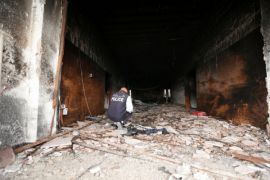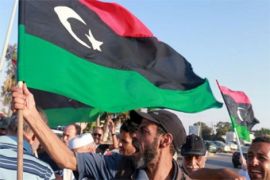"I can say that for us the delivery of weapons is the implementation of article 4 of Resolution 1973," the ambassador told journalists.
That article reads that UN member states are allowed "to take all necessary measures... to protect civilians and civilian populated areas under threat of attack," despite an arms embargo listed in an earlier resolution.
"Which means for us that in exceptional circumstances we cannot implement paragraph nine when it is for protecting civilians. We decided to provide self-defense weapons to the civilian populations because we considered these populations were under threat," said Araud in reference to the arms embargo, which is listed in paragraph nine of UN resolution 1970.
Earlier in the day, a UN diplomat said that according to UN resolutions regarding Libya, providing arms in the country in order to protect civilians is not prohibited.
France admitted for the first time on Wednesday that officials had delivered arms to Libyan rebels in the Djebel Nafusa region, southeast of Tripoli.
They said they had delivered small arms while carrying out humanitarian aid operations to help local populations under threat from Moamer Kadhafi`s troops in the region.
The Security Council adopted Resolution 1970 in February and Resolution 1973 in March on the conflict in Libya. These resolutions imposed severe sanctions on the Kadhafi regime, notably the embargo of arms supplies to Libya and demanded the protection of civilian populations.
Article 4 of Resolution 1973 specified that allowances to the arms embargo can be allowed if in the interest of protecting civilians. (*)
Editor: Kunto Wibisono
Copyright © ANTARA 2011











